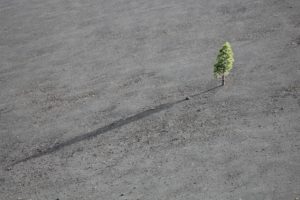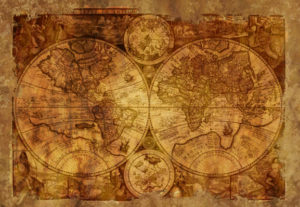
If you could ask God for one thing, what would it be?
(Don’t say salvation. God already gave you that through Christ’s finished work on the Cross.)
You don’t have to share you answer with the class (although I’d love to see it in the comments). So I’ll go first. I would ask God for discernment. (In fact, I have.)
The Bible includes stories of non-believers exhibiting discernment: the Queen of Sheba (1 Kings 10:5-8), King Hiram of Tyre (2 Chronicles 2:11-12), and even a donkey (Numbers 22:22-31). In all those cases, I believe God granted them discernment in that moment. So how does discernment differ when a Christian exercises it?
I don’t claim to have this all sorted, but see if any of this resonates with you.
Discernment literally means “understand the difference.” Discernment from God rightly assesses truth versus error, helps us see beyond the visible, and more. I say we can’t afford to live without it today. Here are seven reasons why.
1. Discernment shows you what to do with knowledge.
Knowing how to rightly use knowledge is wisdom. Solomon asked God to give him a discerning heart so he would be able to rule Israel well (1 Kings 3:9). That pleased God so much that He gave Solomon a wise and discerning heart (1 Kings 3:10-14).
2. Discernment sheds light on the dim parts of your perspective.
Without discernment, we compare ourselves to the giants in our lives. With discernment, we compare our giants to our infinitely greater God—like David did when he faced Goliath (1 Samuel 17:45-47). Through the lens of discernment, our struggles aren’t detours but divine appointments. Our pain has purpose.
3. Discernment reminds you what’s true about God (and you)—especially when you’re in a long battle.
Job endured more than we can imagine. Yet, even as his “friends” accused him, he could still say, “He [God] performs wonders that cannot be fathomed, miracles that cannot be counted” (Job 9:10 NIV).
4. Discernment offers glimpses of God’s bigger plan at work.
We don’t know how many years Hannah prayed to have a child, but the Midrash says nineteen. Oof. Her physical barrenness mirrored the Israelites’ spiritual barrenness at the time. God answered Hannah’s heart-cry with the unimaginable, the seemingly unattainable. She bore a son, Samuel—who was a priest, prophet, judge, and the one who anointed the first two kings of Israel (Saul and David).
5. Discernment helps you avoid negative ripple effects of your actions.
Hezekiah was a righteous king, but he lowered his guard when he became ill. He never should have shared state secrets with his potential enemy, the Babylonians—even though they appeared to be playing nice by sending him get-well letters and a gift (2 Kings 20:12-13). Hezekiah’s decision, devoid of discernment, had devastating consequences for all of Israel (2 Kings 20:16-18).
6. Discernment is a mental muscle that needs constant exercise.
David could have gotten cocky after he defeated Goliath, but he “inquired of the Lord” every time battled the Philistines. God honored that by granting David victory in a different way each time. Praying for discernment is an ongoing endeavor. Strengthen your discernment, and you strengthen other spiritual muscles at the same time, including wisdom, patience, and forbearance.
7. Ask for discernment during battle and at rest.
When David gathered an army at Hebron, he distinguished the sons of Issachar from the ranks because they could “discern the times” and “know what Israel ought to do” (1 Chronicles 12:32). They took a great risk aligning themselves with David while Saul was still on the throne—but they discerned the bigger picture. The Christian life consists of preparing for a battle, being in a battle, or resting from a battle. Our battle prayers should include, “God, what do You want me to see?” “What do I need to learn from this?” And, after battle, “How has this changed my perspective?” “What do I need to remember about You as a result of this?”
Conclusion
Discernment sees the world through God’s eyes, rightly identifying God’s will and direction for His people. Discernment cares about truth, not popular opinion. With discernment, we can understand God’s spiritual truths, live as God intends, and (on a macro level) properly govern society.
Your thoughts? Share them in the comments!
Never miss a post!
******************************************
BONUS:
A powerful example of the journey from knowledge to discernment: Nabeel Qureshi’s testimonial.
(Settle in for the most impactful 35 minutes of your week.)





Leave a Comment